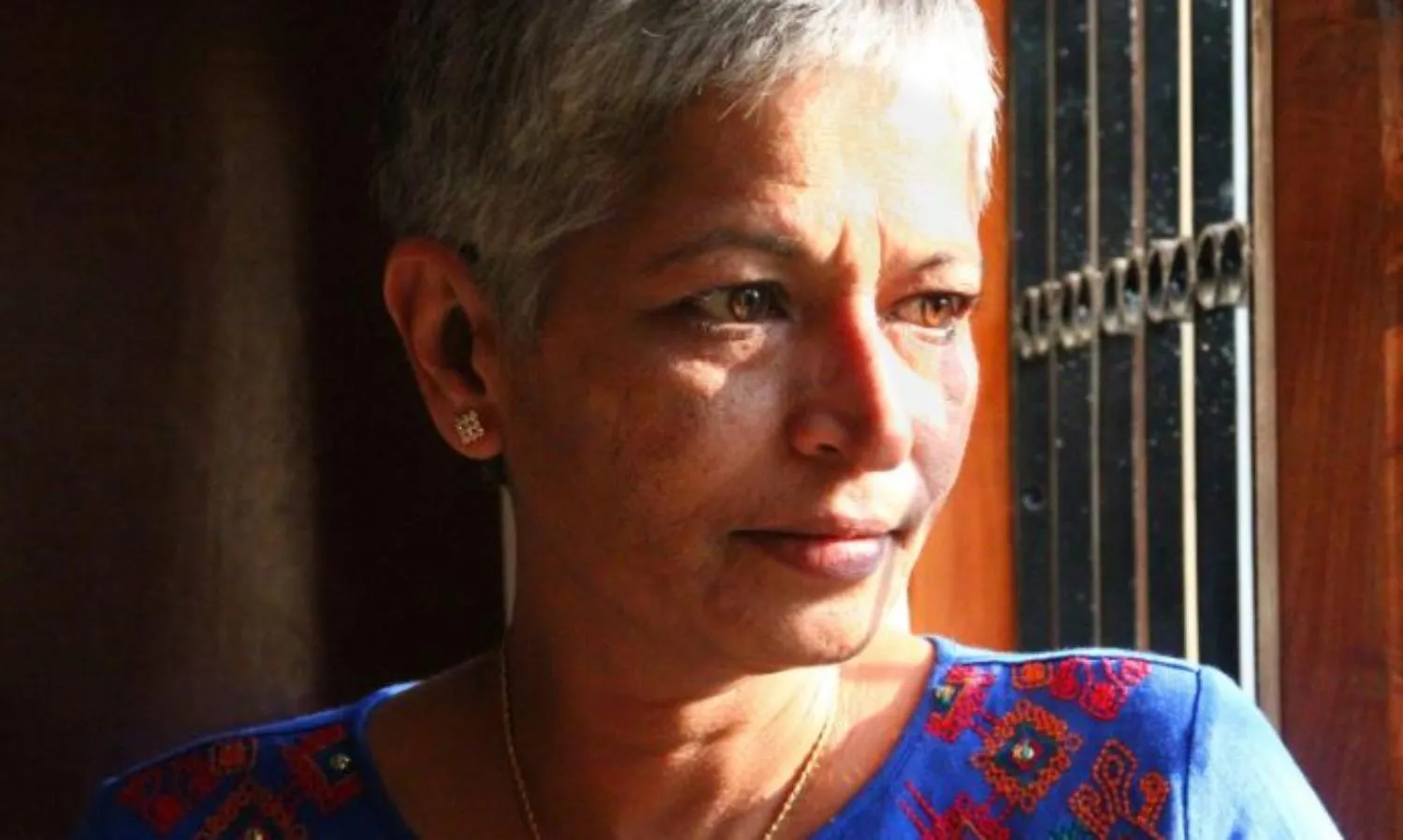400+ Organisations To Commemorate Gauri Lankesh in a National Campaign
If We Do Not Rise';

Over 400 women’s groups, queer collectives and civil rights organisations across India are organising a campaign on September 5 against injustice and targeted attacks on people’s constitutional rights.
The day marks the third anniversary of the murder of Gauri Lankesh, a journalist and activist in Bangalore, according to Karnataka police by the Sanatan Sanstha, a Hindu supremacist organisation.
The campaign, Hum Agar Uthe Nahin To… (If We Do Not Rise…) was announced at a press conference on August 27, where activists and representatives of various organisations said the campaign would include protests on the ground and online.
Social activist Anjali Bhardwaj of the Satark Nagrik Sangathan said there has been an “unprecedented attack” on Indian democracy, constitutional rights and values by an “anti-poor regime”.
“The COVID-19 crisis, the way it was handled, also exposed the anti-poor regime,” she said. The way the lockdown was announced led to the disemployment of farmers, internal migrants, sex workers among others. “The government has done little to fix the problem.”
Bhardwaj said citizens had two means available to them to “fight back”: freedom of expression, and institutions of accountability, which are sacrosanct and being “crushed” and “diluted”.
Campaign organisers stated in a press release that: “The growth of fascist and neo-liberal forces in the country, and the resulting rise in violence in society, has deeply impacted the lives of women and members of the LGBTQIA communities. Attacks on religious minorities have created an atmosphere of fear and insecurity.”
On the countrywide protests against the Citizenship (Amendment) Act and the subsequent riots in Delhi, the organisers stated:
“Instead of arresting leaders who made hate speeches inciting violence, the women and people who worked for unity, peace and the Constitution are being arrested and incarcerated.”
“These are urgent times so we have to come together and protect India’s Constitution and democracy,” said Kavita Krishnan, secretary of the All India Progressive Women’s Association and CPI-ML senior leadre.
“The government is moving fast to change the India we know. If we look at the National Education Policy, it is bringing graded inequality,” said Krishnan.
“In the case of Environment Impact Assessment, they are getting rid of environmental assessment measures which were a small measure of democracy for local people to say which projects they want and which they don’t. And they are moving fast to get rid of labour laws,” she said.
The representatives of various national networks also cited rising male violence, a “frontal attack on the freedom of expression”, and a systematic silencing of dissent.
Annie Raja, general secretary of the National Federation of Indian Women and CPI leader said that women were being “pushed out of all sectors” including education, economy, health and are “forcefully disappearing because of policies and decisions of the government.”
Abha Bhaiya, national convener of One Billion Rising, said there had been a 125% increase in violence in Himachal Pradesh, with not a single shelter or widow crisis centre in the state. Bhaiya demanded that governments strengthen redressal systems, guarantee timely access to legal aid, and appoint women to policy-making positions.
Meera Sanghamitra of the National Alliance for People’s Movement stated, “Today is the time to rise against various forms of atrocities. Be it any section of our society — farmers, Dalits, Adivasis, fisherfolk and transpeople — the rights of the people are being diluted.”
“The few laws that were in place after hard won battles are being diluted one by one. Along with lockdown, we are also facing a severe clampdown on our voices,” Sanghamitra said, highlighting “regressive laws” such as the Transgender Persons (Protection of Rights) Act which had adversely impacted the community.
“There are very few provisions in place to protect the safety and rights of the entire LGBTQIA community. There have also been several moves to dilute SC/ST/OBC reservations and the SC/ST Prevention of Atrocities Act,” reads the campaign press release.
Speakers emphasised the depth of the economic crisis, saying the lockdown had magnified it to catastrophic proportions.
“The pandemic has also exposed the dismal state of the country’s public health system. Gender based violence and caste-based atrocities against Dalits have risen sharply during the lockdown.”
“There have been moves to dilute laws to protect women in the name of mitigating COVID-19 revealing the anti-women attitude of the regime,” the organisers stated.
According to Abirami Jotheeswaran, director of the All India Dalit Mahila Adhikar Manch, “Even in the pandemic, it is very difficult for Dalit women to access her entitlements. Whenever she asserts her rights, there are various forms of violence.”
Mariam Dhawale, general secretary of All India Democratic Women's Association (CPI-M), said that the government was using the pandemic to change the entire nature of the country, believing that citizens would not be able to raise their voices.
“There is a hunger crisis, rise in violence, education and health issues. These are issues the government must respond to… It is changing the laws, by undemocratically setting up committees and giving such short time that nobody can respond,” she said.
Speakers observed that women and queers had been at the forefront of the movement to protect the Constitution of India. This campaign too was an initiative to safeguard constitutional principles and values.
The program will circulate videos on various issues and conduct live sessions on social media, exhibit artwork online and also submit citizens’ memoranda to local authorities on the issues faced by the people of the country.

